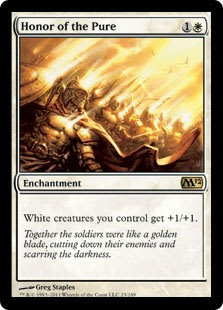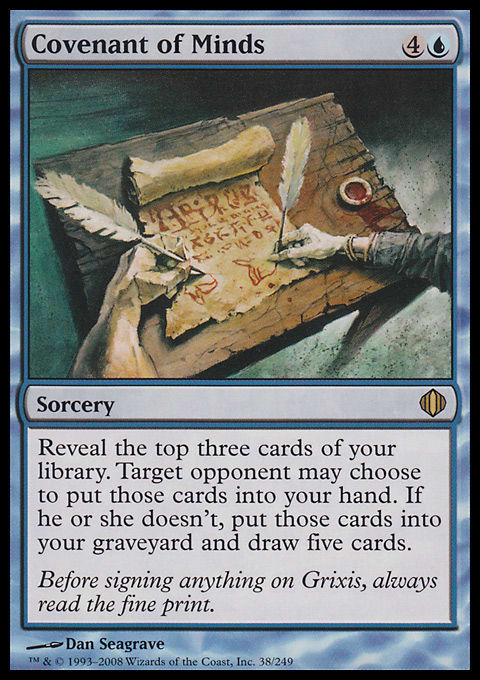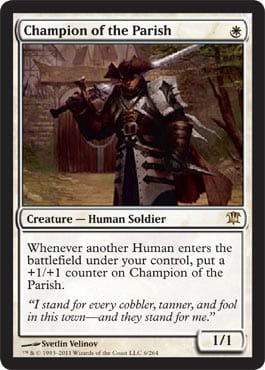As a member of the Pro Tour Hall of Fame, I consider myself an ambassador of the game. During the height of my career, I wasn’t overly popular on the tour, but I wasn’t making any special effort to be popular either. While I didn’t wish to be disliked, my first concern was winning tournaments, not popularity contests.
Things are different now. I may or may not be popular, but I definitely make an effort to connect with the Magic community at every level in which I’m a part of it. When I leave a game store after an evening of Draft, I wish the other players good night, even if I don’t know them. I accept all Facebook requests from Magic players whether I know them personally or not. When a player sends me a message, I try to reply in a timely fashion even if it’s just to apologize for not having a good answer to his or her question.
I am an introvert. I like to have a few close friends with whom I interact, and I typically prefer to avoid interacting with strangers or even most little-known acquaintances. These preferences aren’t conducive to the way I think an ambassador of the game should act, so I try to set my preferences aside as much as possible to be more interactive with other Magic players. I was recently eating dinner with Rada Rudyak across the street from the game store where I was about to be drafting when someone came up behind me and squeezed my shoulders. He said he’d see me at Draft and left. I looked at him as he was departing and saw it was a local player who only looked vaguely familiar.
My initial reaction was a bit of shock and even a little discomfort. I’m generally pretty protective of my personal space. After I calmed down from the initial surprise, I reflected rationally on what had happened. I realized that the first point when it became unpleasant was when I realized I wasn’t very familiar with the person who had done it. If it had been a close friend or even a pretty girl, I’m sure I wouldn’t have been upset. (Although in the latter case, I might have been concerned about Rada’s reaction.)
Why was I upset? He clearly didn’t intend me any harm—he easily could have harmed me if he had wanted to. He obviously felt it was just a friendly gesture without realizing that I might find it upsetting. So, I made the decision not to be upset about it (this was harder than it sounds.) After all, this is what I’ve been seeking: for Magic players to find me approachable and not merely some arrogant pro, even if that description does have some merit in the strictest sense.
My commitment to being an ambassador for the game extends to my role as a Hall of Fame voter as well. I take quite seriously my duty of helping ensure the most deserving candidates are elected. This year brings another strong group of candidates for enshrinement, and the debate about who is worthy of the call to the Hall is already raging on Facebook and Twitter.
I consider three main things when deciding whom to vote for:
- Stats – This is the main factor. The two biggest stats I look at are lifetime Pro Points and Pro Tour Top 8s. I also consider Pro Tour wins and median finish during a player’s three-year career peak for players with PT Points and Top 8s that are on the fence. This basically means I’m looking for players who were consistently good, showed the ability to be among the game’s most dominant players, and played at a high level for an extended period of time.
- Integrity – If a player is widely known for sportsmanship and integrity, that can give him a nudge, but I try not to rely too much on hearsay or even just what I’ve witnessed in person. This is mainly for excluding players who have been suspended or banned for cheating. While obviously there are players in the HOF who have been suspended, there are obviously many voters who agree with me, since players such as Mike Long and Mark Justice have never come very close to making it in. If I personally know a player to be lacking in integrity even though he hasn’t actually been suspended or banned, that player won’t get my vote, though I’m unlikely to call the player out publically if he’s never been proven to be a cheater.
- Contribution to the Game – This is primarily a way to give a nudge to players with stats on the fence. If a player gives to the game through writing, is famous for deck design, or contributes in some other cool way to the benefit of the game, I’ll try to take it into consideration.
When determining what stats merit an invite to the Hall of Fame, I think it’s helpful to take a look at the stats of the players who are already members. There are twenty-nine players currently enshrined in the Pro Tour Hall of Fame. On average, they have 307 lifetime Pro Points and five Pro Tour Top 8s. While this may be a bit skewed by Jon Finkel’s 486 and fourteen or Kai Budde’s 500 and ten, one could also point to Steve O’Mahoney-Schwartz’s 242 and three or even Randy Buehler’s almost shocking 126 and one.
So as far as I’m concerned, if a player has at least five Top 8s and at least 300 Pro Points, he pretty much deserves to be in from a stats perspective. If he’s behind in one of the two categories but ahead in the other one, that can also be a compelling case for admission. By these standards, Paulo Vitor Damo da Rosa should be a lock, with nine Top 8s and 352 Pro Points. The only other player to meet both stat thresholds is Tomoharu Saito, with five Top 8s and 348 Pro Points, but he was actually removed from the 2010 ballot for cheating, and for me, that’s good enough to still keep him off the ballot.
I’m allowed to vote for five players, and I have always chosen to do so and would like to continue doing so. After putting PVDDR on my list, it’s time to take a closer look at everyone else’s stats. Two players immediately stand out: Kenji Tsumura and Masashi Oiso. They are the only two players on the ballot besides Paulo with more than five Top 8s (six), and they have respectable Pro Point totals in addition (249 and 248).
After adding those two to my ballot, things become a little harder. This is usually when I check out Pro Tour wins and three-year median finish. There are five players on this ballot who, over a three-year period, finished in the Top 32 on average! This is an incredible run of dominant performances. Three of them—Mark Justice, Mike Long, and Saito—I’m not considering for my list due to integrity issues. A fourth, Tsumura, is already on my list. This leaves Justin Gary, who had an incredible three-year median finish of twenty-fifth place.
Thus, it’s probably no surprise that Justin blows away the rest of the ballot with a total of twenty Top 32 finishes (Long is next with fourteen). For comparison, PVDDR has eleven, Tsumura has ten, and Oiso has eleven. This is the kind of consistency and dominance that I believe makes for an ideal Hall of Famer. The fact that he has a Pro Tour win, three Top 8s, and 252 Pro Points allows him to compare favorably with the remaining players on the ballot as well.
This leaves me with one spot left on my list of players to submit. At this point, there aren’t any other players who are obvious to include based on stats. At a glance, Tsuyoshi Ikeda may seem like a pretty strong candidate with four Top 8s and 313 points, but a closer look reveals that he attended fifty-nine Pro Tours to accumulate those stats and had a median finish of one hundred twenty-third, and even his three-year median is only sixty-seventh. So while I wouldn’t be mortified at Ikeda’s inclusion, I don’t think he has a compelling case.
Statwise, the best remaining candidates are probably Pat Chapin, Bill Jensen, Makihito Mihara, Ben Stark, Osyp Lebedowicz, Paul Rietzl, and Eugene Harvey. They all have at least three Pro Tour Top 8s and at least 200 Pro Points. Jensen and Mihara are helped by good three-year medians, with both at thirty-ninth, and Lebedowicz is right behind at forty-first. Harvey is helped by a reputation for sterling sportsmanship and impressive deck design. Chapin, Stark, and Rietzl are all excellent Magic writers, and Chapin is especially well regarded for his creative deck designs.
Ever since Wizards changed the admission rules in 2008 to only induct players receiving at least 40% of the vote, they have only enshrined more than three players once, back in 2008. For the last three years, they have only added three new members to the Hall. I think that is somewhat likely to happen again this year unless enough voters start giving more weight to the three-year median finish stat, which would ensure Justin Gary's admission.
With that in mind, I’m giving my last vote to a player whom I want to ensure receives enough votes to stay on the ballot for another year because I’m a huge fan of his, and I think his stats are going to keep improving significantly since he is still active and at, or near, the top of his game: Paul Rietzl. With his stats and his contributions to the game, I would consider him a welcome addition to the Hall, but I’m sure in another year or two, his résumé will improve to the point that his inclusion will be a no-doubter.
So, my votes for the 2012 Hall of Fame class go to:
- Paulo Vitor Damo da Rosa
- Kenji Tsumura
- Masashi Oiso
- Justin Gary
- Paul Rietzl
I look forward to welcoming our new members when the results are announced at the end of the month. I hope they will all regard Hall of Fame membership with the same reverence as I do and strive to be excellent ambassadors of the game.

























